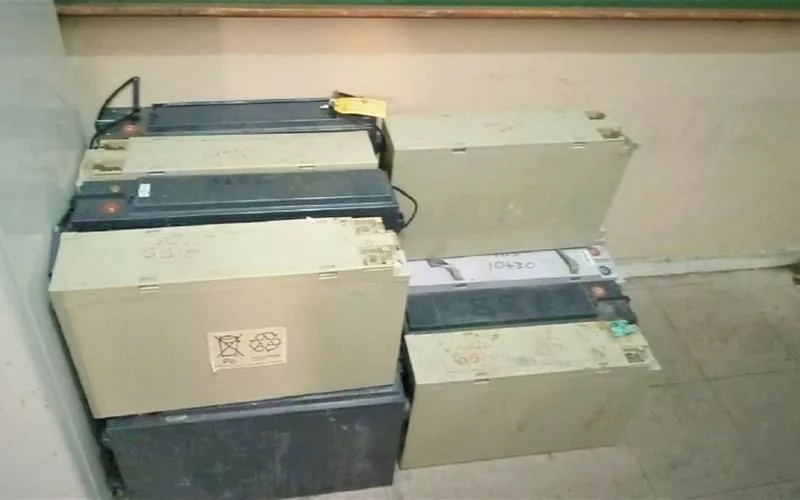The 30th Investing in African Mining Indaba in Cape Town honored the late Namibian President and discussed opportunities and challenges in the African mining sector. South Africa’s mining industry has undergone transformative changes over the past three decades, with a shift from 2% to 39% black ownership. However, the sector faces challenges such as geopolitical conflict, energy costs, and illegal mining. President Ramaphosa proposed goals to boost the sector’s competitiveness and ensure a sustainable future. Initiatives such as the Electricity Action Plan and Just Energy Transition Investment Plan provide a roadmap for progress.
What is the Investing in African Mining Indaba?
The Investing in African Mining Indaba is an annual mining conference held in Cape Town, South Africa, that brings together mining companies, investors, government officials, and other stakeholders to discuss opportunities and challenges in the African mining sector. The 30th Investing in African Mining Indaba also commemorated the late Namibian President, Dr. Hage Geingob, who was a staunch advocate of advancement and socio-economic growth in Africa.
Memorable Commencement and Tribute to a Visionary
The 30th Investing in African Mining Indaba in Cape Town was unveiled amidst an atmosphere of deep respect and commemoration. President Cyril Ramaphosa poignantly memorialized the late Namibian President, Dr. Hage Geingob, who was a staunch advocate of advancement and socio-economic growth. Africa finds itself in mourning, grieving the loss of a trailblazing leader who ardently believed Africa’s plentiful resources could significantly enhance the lives of its people.
Reflection on the Evolution of South Africa’s Mining Industry
Remarkably, the mining convention took place at the same time as the celebration of South Africa’s democracy’s 30th anniversary. Over the past three decades, the country’s mining industry has undergone transformative changes. Serving as an economic cornerstone for nearly 150 years, mining brings in about 7.5 percent of South Africa’s GDP and approximately 60 percent of its export value.
The democratic government, in league with the industry and the labor sector, has spearheaded a sustainable metamorphosis within the mining industry. In 2004, the industry was only 2 percent black-owned. However, today the figure has surged to around 39 percent. This significant shift bears testimony to South Africa’s progress in subverting the oppressive apartheid regime, notorious for labor exploitation, human rights abuses, and abysmal health and safety standards in the mining industry.
Currently, the mining sector employs about 476,000 people, ensuring robust protection of workers’ rights. Mining corporations are legally bound to provide quality services and contribute to community development. Employee share ownership schemes are also encouraging involvement in mining establishments, thus effectively empowering the workforce.
Challenges Within the Mining Industry
The mining sector, however, is no stranger to obstacles. Geopolitical conflict, soaring energy costs, unpredictability of commodity prices, and a worldwide cost of living crisis are exerting pressure on the business environment. Locally, an energy crisis and logistical complications at ports and railways are driving up miners’ operational costs. Illegal mining, cable theft, and infrastructure vandalism compound the stress on the industry.
To counter these difficulties, President Ramaphosa proposed four goals last year: ensuring a steady electricity supply, speeding up economic reforms to improve the business environment, battling illegal mining and infrastructure destruction, and refining the regulatory environment. These aims are intended to boost the sector’s global competitiveness and harmonize it with the worldwide push for sustainable development.
Taking Steps Towards the Goals
Several initiatives have been implemented under the Electricity Action Plan to elevate the performance level of the current energy generation fleet and introduce new electricity capacity. The Department of Mineral Resources and Energy is securing new generation capacity and has issued proposals for renewable energy, gas-to-power, and battery storage.
Economic reforms are facilitating businesses to function more efficiently. The National Energy Regulator of South Africa has registered over 1,312 energy generation facilities supplying the mining load. Companies such as Gold Fields, Anglo American, Seriti, and Exxaro are capitalizing on these reforms to reduce their operational costs.
The creation of a specialized police force to combat illegal mining and infrastructure damage resulted in a wave of arrests, prosecutions, and convictions. The Department of Mineral Resources and Energy is closing ownerless and dilapidated mines, with plans to seal more shafts in the next three years.
Transformational Changes and Future Prospects
Further improvements are underway in South Africa’s cargo logistics system, with a concentrated effort to resolve issues with ports and railways. The government is introducing competition in freight train operations and upgrading port terminals through public-private collaborations, aiming to establish South Africa as a dominant player in global markets.
President Ramaphosa emphasized the necessity of embracing progressive disruption, such as transitioning to a low-carbon, climate-resilient economy. He shed light on the immense reserves of minerals like manganese, iron ore, copper, cobalt, nickel, and platinum group metals found under Africa’s soil. These reserves provide Africa with the opportunity to be the fulcrum of the global energy transition, with mining as its centerpiece.
The Just Energy Transition Investment Plan provides a roadmap towards fostering new industries and supporting livelihoods in the green economy, relying on robust collaboration among the government and all social partners. The mining sector’s role in this journey is undeniable.
As the 30th Investing in African Mining Indaba concludes, there is a prevailing sense of hope. The industry stands on the brink of penning a new chapter in South Africa’s mining history, a narrative of inclusion, growth, transformation, and innovation. No one is to be left out of this story. As efforts continue to enhance collaboration and press on with transformation, the mining industry is undoubtedly the architect of tomorrow’s economy.
What is the Investing in African Mining Indaba?
The Investing in African Mining Indaba is an annual mining conference held in Cape Town, South Africa, that brings together mining companies, investors, government officials, and other stakeholders to discuss opportunities and challenges in the African mining sector.
What was the focus of the 30th Investing in African Mining Indaba?
The 30th Investing in African Mining Indaba in Cape Town honored the late Namibian President and discussed opportunities and challenges in the African mining sector. South Africa’s mining industry has undergone transformative changes over the past three decades, with a shift from 2% to 39% black ownership. However, the sector faces challenges such as geopolitical conflict, energy costs, and illegal mining.
What goals were proposed by President Ramaphosa to boost the sector’s competitiveness?
President Ramaphosa proposed four goals last year: ensuring a steady electricity supply, speeding up economic reforms to improve the business environment, battling illegal mining and infrastructure destruction, and refining the regulatory environment. These aims are intended to boost the sector’s global competitiveness and harmonize it with the worldwide push for sustainable development.
What initiatives have been implemented to achieve the proposed goals?
Several initiatives have been implemented under the Electricity Action Plan to elevate the performance level of the current energy generation fleet and introduce new electricity capacity. Economic reforms are facilitating businesses to function more efficiently. The creation of a specialized police force to combat illegal mining and infrastructure damage resulted in a wave of arrests, prosecutions, and convictions.
What is the Just Energy Transition Investment Plan?
The Just Energy Transition Investment Plan provides a roadmap towards fostering new industries and supporting livelihoods in the green economy, relying on robust collaboration among the government and all social partners. The mining sector’s role in this journey is undeniable.
What is the future prospect of South Africa’s mining industry?
President Ramaphosa shed light on the immense reserves of minerals found under Africa’s soil. These reserves provide Africa with the opportunity to be the fulcrum of the global energy transition, with mining as its centerpiece. As efforts continue to enhance collaboration and press on with transformation, the mining industry is undoubtedly the architect of tomorrow’s economy.












